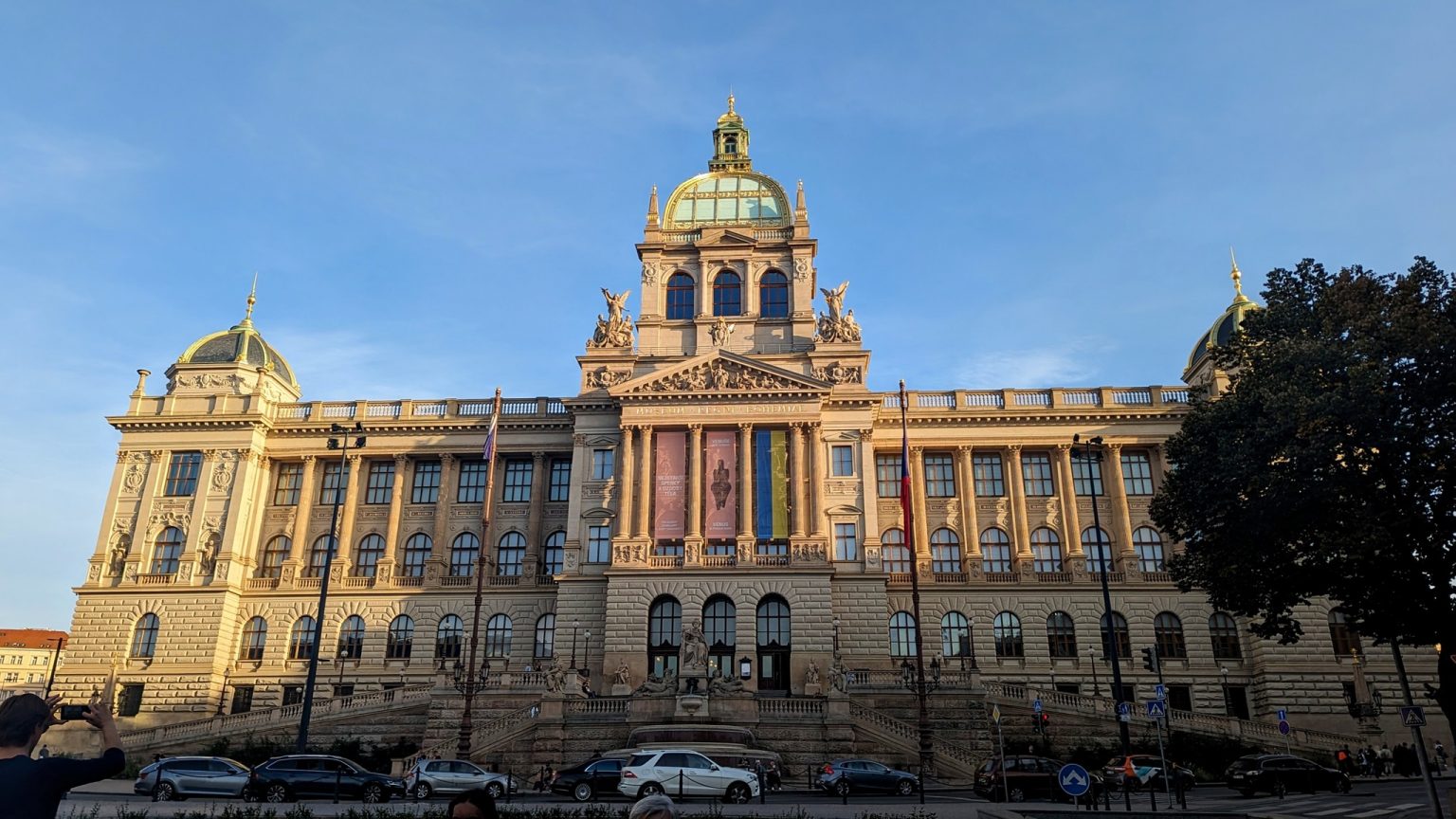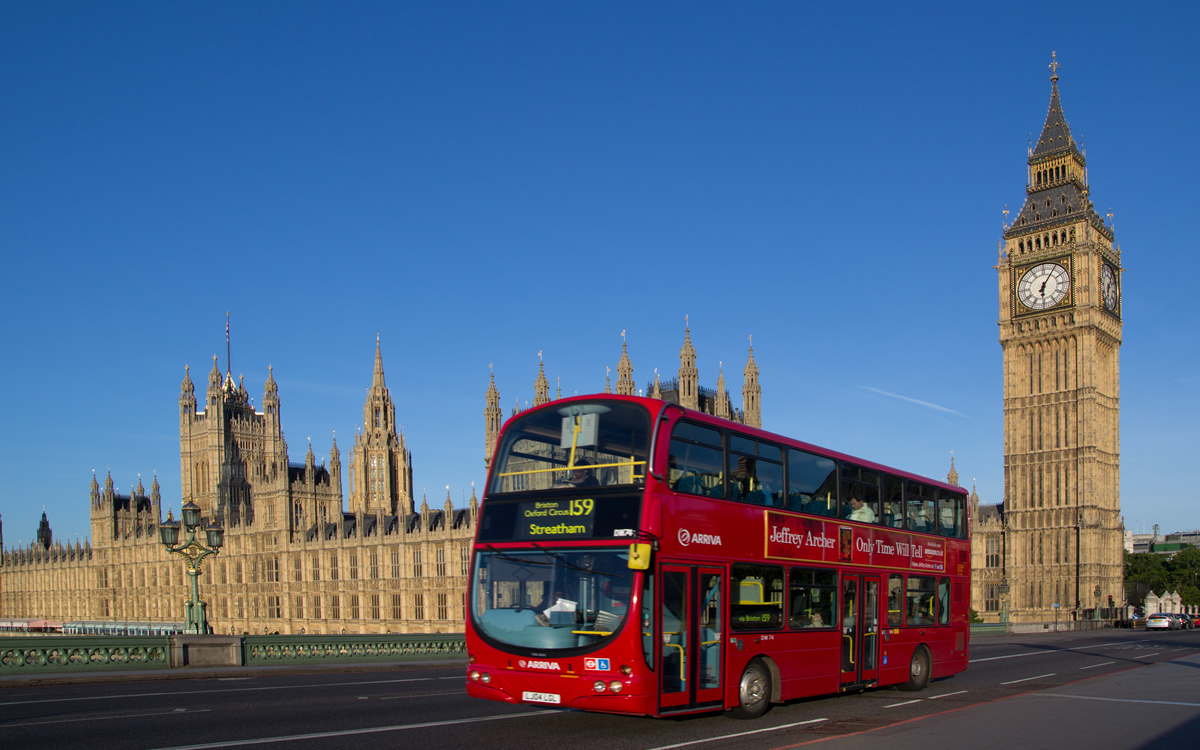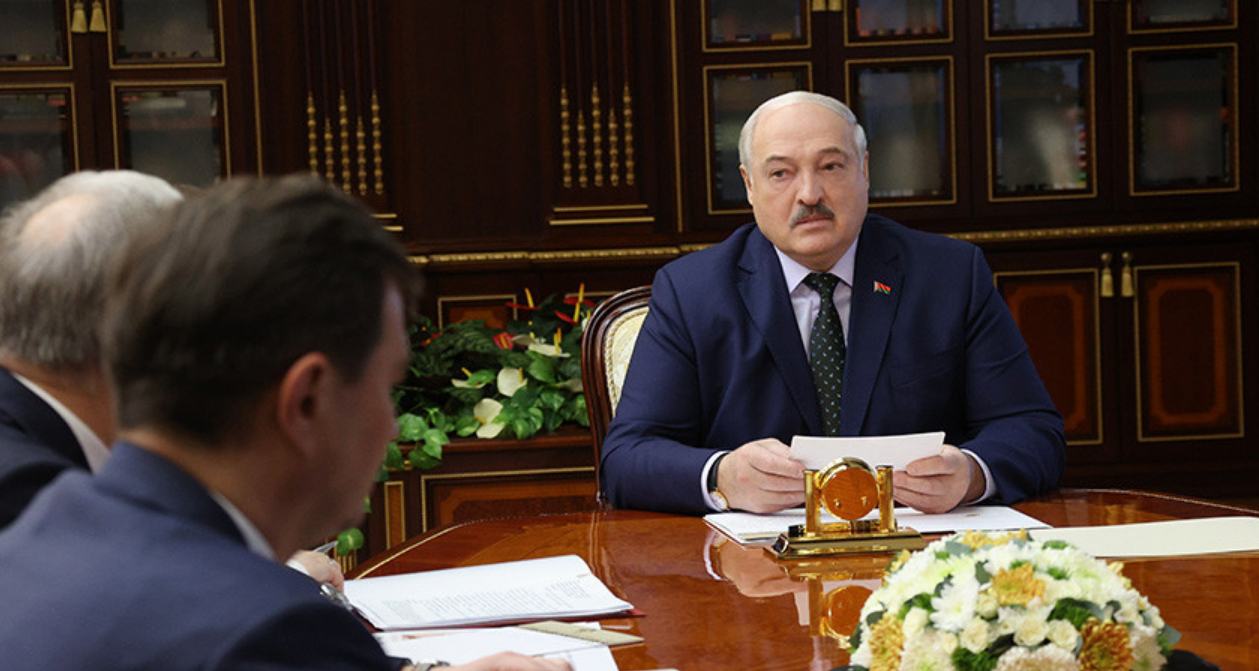World
Out in the World: LGBTQ news from Europe and Asia
German lawmakers on Friday passed a transgender rights bill

MONACO

Monaco’s top court struck down two lower court rulings that would have required the tiny Mediterranean principality to recognize foreign same-sex marriages, in a ruling that has not yet been published.
The case centered around a binational Monegasque-American same-sex couple who married in Grand Rapids, Mich., in August 2019 while residents in that state. When they returned to Monaco the following year, the government refused to record them in the state register of marriages.
“Although valid, this union cannot be transcribed in the marriage register in view of its manifest contrariety with Monegasque public order characterized by the constitutional principle according to which the Catholic, Apostolic and Roman religion is the state religion,” stated a letter from the Public Prosecutor’s Office in a letter to the Civil Registrar on the matter.
The letter goes on to invite the couple to instead form a cohabitation contract, which has been available to same-sex couples in Monaco as a form of civil union since 2020.
The couple rejected that offer and appealed to the attorney general, who again refused to recognize the marriage, so the couple took their case to court.
In March 2022, the court of first instance ruled in the couple’s favor, citing the presumption in international private law that marriages validly concluded in one country are generally recognized in any country. The court also found that the same-sex marriages are not contrary to the public order simply because Catholicism is the state religion, and that the cohabitation agreements are inadequate to protect the family rights of married couples.
The prosecutor general quickly appealed the decision, but the Court of Appeal once again ruled in September 2023 in the couple’s favor. The court also found that the state’s offer that the couple could protect their rights through a cohabitation agreement to be impractical, as the cohabitation law specifically says that agreements are unavailable to anyone who is already married.
Still, the government appealed the decision to the Court of Revision, Monaco’s highest court dealing with administrative matters. That court finally ruled that the government is not obliged to record same-sex marriages, striking down the previous two rulings.
LGBTQ rights have long been a contentious issue in the tiny city-state of approximately 39,000. While there are no local LGBTQ advocacy organizations, the state has been pushed to enhance the legal rights of its queer citizens by its larger European neighbors.
Monaco was one of the last states in Western Europe to offer legal recognition to same-sex couples through the 2020 Cohabitation Agreement Bill, which came about largely because Monaco recognized it was in violation of the European Convention on Human Rights, which courts have interpreted as requiring states to give equal recognition to same-sex couples.
Still, the cohabitation agreement is explicitly unequal to marriage. Couples in cohabitation agreements are not considered families and can even include siblings or other relatives. They don’t enjoy equal treatment in terms of taxation or inheritance, can’t choose a common surname and can’t adopt and cohabitation with a Monegasque citizen doesn’t entitle a partner to residency rights the way marriage does.
Monaco also lacks any anti-discrimination protections for LGBTQ people, and transgender people are not allowed to change their legal gender.
ITALY

During a press briefing Friday at the conference “For a Young Europe: Demographic Transition, Environment, Future,” Italian Prime Minister Giorgia Meloni took aim at the practice of surrogacy which is already illegal in Italy saying the practice is “inhuman.”
The prime minister’s party recently introduced legislation in the Italian Parliament that would further criminalize the act by hiking fines from €600,000 to €1 million ($640,290 to $1,067,150) and increasing jail terms from three months up to two years.
“I continue to believe that surrogacy is an inhuman practice,” Meloni said. “I support the bill that makes it a universal crime,” she added.
Last week Pope Francis issued a papal document, the 20-page Dignitas infinita, which stated that surrogacy “violates” both the dignity of the child and the woman, who “becomes a mere means subservient to the arbitrary gain or desire of others.” The document also declared gender-affirming surgery to be a grave violation of human dignity.
CNN reported that the move to criminalize surrogacy is largely seen as a move against the LGBTQ community. Italy was the last European country to legalize same sex unions, which it did in 2016 but does not allow gay couples to be “married,” in line with the Catholic Church.
Under Meloni’s government, birth certificates were changed to list “mother” and “father” rather than “parent 1” and “parent 2.” In 2023 some communities where her Brothers of Italy leads the government, names of lesbian mothers were removed from birth certificates.
CZECH REPUBLIC

The Czech Senate began consideration of bill that would enhance the rights of people in same-sex civil partnerships this week, continuing a tense legislative process that has seen pro-and anti-LGBTQ groups lobbying lawmakers to make changes to the bill.
The civil partnership bill passed through the lower house of parliament in February. It was a compromise after a bill that would have allowed same-sex marriage couldn’t get enough support to pass.
The bill makes registered partnerships, which have been legal in the Czech Republic since 2005, equivalent to marriage in all matters except adoption. Same-sex couples will have the right to stepchild adoption only — couples will not be allowed to jointly adopt.
Some senators have presented amendments to the bill that would allow same-sex marriage and full joint adoption, but some legislators think this strategy is risky — any amendments would send the bill back to the lower house, where it’s not clear they could pass.
On the other hand, some senators are pushing amendments that would water down the bill further, by eliminating adoption entirely.
Leading up to the senate debate, LGBTQ advocates were sanguine about the prospects of getting everything they want.
“Together with the majority of Czech society, we sent a clear message to our legislators: Only the institute of equal marriage will ensure equal legal protection, social security and family stability for all couples and families with children,” wrote Lucia Zachariášová a lawyer who works with the LGBTQ advocacy organization Jsme Fér in an open letter to legislators this week.
“However, the partnership can at this moment fulfill a promise repeated so much that if it is not a question of marriage, there will be no problem to accept such a solution. It is important to repeat again: it will help especially families with children to have a little more restful sleep,” she writes.
So far, three senate committees have examined the bill, recommending either that the Senate pass the bill as is or simply not debate it. In the Czech system, if the Senate doesn’t address a bill passed by the House, it is sent to the president to be signed into law anyway. The president is expected to sign the bill, as he campaigned for full marriage equality.
One more committee is set to examine the bill next week before it’s scheduled for debate on the senate floor April 17.
If the Senate rejects a bill, or passes it with an amendment, it returns to the lower house, where deputies can either accept the amendment or reaffirm the bill with the support of an absolute majority or 101 votes. The bill originally passed through the lower Chamber of Deputies with 118 votes in favor.
While Czech LGBTQ people are disappointed by the lack of progress on marriage equality, they’re also anxious to get the bill passed, as it would still offer a great improvement to the legal rights of many same-sex couples and their children.
“The House is not expected to improve the amendment. On the contrary, there is a fear that the situation could worsen or that everything would fall under the table,” Jsme Fér said of the progress on the bill in a post on X. “[Senators] fear a debate that might not be dignified for hundreds of thousands of LGBT people, and after six years of debates in the House of Representatives, everything important has already been said.”
GERMANY

The German Parliament on Friday voted 374-251 to pass a new law allowing trans people to change their legal gender by a simple administrative procedure, replacing outdated requirements from the 1980s for declarations of support from doctors and other invasive procedures.
The new law also imposes hefty fines of up to €10,000 ($10,658.85) on anyone intentionally disclosing a trans person’s previous name or gender for a harmful purpose. The law allows exceptions in cases where disclosure would be a legal requirement, for example in a court proceeding or a police investigation.
Under the new law, trans people may change their legal gender to male, female or “diverse” — a third-gender option already available under German law. Applicants can also request that no gender details be recorded at all. Trans people will simply file a request, and then appear in person at a registry office three months later to make the change official.
The new law is open to people over 18. Those between 14 and 17 will need a parent’s permission to file the application, while those under 14 will require parents to file the application on their behalf.
Applicants are limited to one name and gender change within 12 months. The law also allows the government to suspend applications to change legal gender from male to female or diverse made up to two months before a national emergency is declared.
The law continues to allow operators of women-only spaces, such as gyms or changing rooms, to decide on their own who is allowed to access them.
German Chancellor Olaf Scholz said the law was about showing respect to gender-diverse people.
“We show respect to trans, intersex and non-binary people — without taking anything away from others. This is how we continue to drive the modernization of our country. This includes recognizing realities of life and making them possible by law,” Scholz wrote in a statement on X.
The law was part of the governing agreement made by the current governing coalition. The upper house of parliament does not need to vote on the bill. The law will come into effect in November.
Under the 1980 Transsexuals Law, trans people were required to get two expert reports from doctors attesting that the applicant will not be likely to want to return to their previous legal gender. These reports often required trans people to undergo invasive psychological and physical examinations and would add months of delay and average additional costs of up to €2000 (approximately $2,130.)
The Constitutional Court struck down a requirement that trans people have sex reassignment surgery and be sterilized in 2011. The same court required the government to create a non-binary option for intersex people in 2017, which the government did a year later.
Germany’s coalition government, in place since September 2021, has promised to introduce several pro-LGBTQ policies, including creating a hate crime law, amending the Basic Law to ban discrimination based on sexual identity, and automatic parenthood recognition for same-sex parents.
UNITED KINGDOM

A government-commissioned review of gender care services for trans youth in England and Wales has sparked an outcry from trans activists who say that the review discounted decades of research showing the value of gender care treatment to reach a conclusion that care should be restricted for youth.
The “Cass Review” was commissioned by the National Health Service England in 2020 to examine gender care services for young people following reports showing a large increase in the number of youth accessing care at the now-closed Gender Identity Development Service. The Review was led by Dr. Hilary Cass, a former president of the Royal College of Pediatrics and Child Health.
The disputed report concluded that there isn’t good scientific evidence to support most forms of gender care, including puberty blockers, hormone therapy or social transition.
“While a considerable amount of research has been published in this field, systematic evidence reviews demonstrated the poor quality of the published studies, meaning there is not a reliable evidence base upon which to make clinical decisions, or for children and their families to make informed choices,” reads an excerpt of the report’s executive summary.
But trans advocates criticized that conclusion, pointing out that Cass held existing studies of gender care to an impossible standard. Her report discounted any study that wasn’t based on double-blind trials, which they say would not be possible or ethical.
“The Cass Review dismisses a very large number of studies and omits studies from the past two years. Hence, it neglects a vast amount of evidence on the benefits of gender affirming medical treatment for trans youth in its analysis,” writes Dr. Hane Maung of the trans healthcare service GenderGP.
“For many medical interventions, including gender affirming medical treatment for trans youth, randomized controlled trials are unfeasible and unethical, because the consequences of not intervening would be very apparent to the participants and also would be unacceptably harmful,” he says.
The Cass Review urges caution in treatment for trans youth, including a new recommendation that medical consultations be undertaken before youth are allowed to socially transition — a major expansion of the medicalization of gender identity. Some trans activists also noticed that the review suggests increased surveillance of trans care through age 25, suspecting this implies further restricting care into adulthood.
The day the Cass Review was published, NHS England announced it would be launching a review of adult gender care, alleging whistleblower complaints.
The Guardian reports that Cass also advised the government to be cautious with the proposed ban on conversion therapy, which the government has put under review, but which is unlikely to be introduced before an election is held. Cass reportedly urged the minister responsible to ensure that doctors providing gender care are insulated from accusations of conversion practices, claiming that doctors are already afraid to take a more cautious approach to providing treatment.
The Cass Review has already made waves across the UK, with transphobic author JK Rowling claiming that it vindicates her years-long anti-trans campaigning, and claiming she would “never forgive” “Harry Potter” stars Daniel Radcliffe and Emma Watson for supporting trans rights.
Prime Minister Rishi Sunak endorsed the report’s findings.
“We care above all about the wellbeing of children and it’s clear that these things are not neutral acts, whether that’s social transitioning, any kind of medical intervention, we simply do not know the long-term effects of these things,” he says. “And that’s why anyone involved in considering these issues, of course, has to treat people with sensitivity and compassion, but also have to be extremely cautious when it comes to taking any action.”
The opposition Labour Party, which is expected to win national elections later this year, has already said it would implement all of the Cass Review recommendations when in government. Labour’s shadow minister for health told the Sun that he no longer stood by the statement that “trans women are women” in the wake of the review.
The NHS Scotland and NHS Wales, which hold devolved responsibility for care in those countries, said they were reviewing Cass’ findings.
BELARUS

The government of Belarus issued a decree this week declaring that depictions of LGBTQ people may be considered illegal pornography, whether or not sexual acts are depicted.
The Culture Ministry amended a decree on “erotic materials” to include homosexuality or transgender as “non-traditional sexual relationship or behavior,” equivalent to necrophilia, pedophilia, and voyeurism.
That may mean that depictions of LGBTQ people are considered pornography. Under Belarussian law, production, distribution and public displays of pornography are punishable with up to 4 years in prison, or up to 13 years for child pornography.
Using these new definitions, an innocuous picture of a same-sex couple with their child, or a picture of a trans child, or a picture of two same-sex teens on a date, could all be considered child pornography.
According to Human Rights Watch, it is not yet clear how the government plans to interpret and enforce the new decree.
Belarus is one of the least free countries in Europe according to the human rights advocacy group Freedom House. Often considered a client state of neighboring Russia, Belarus tends to follow its larger neighbor culturally and politically. The country has bene governed by President Alexander Lukashenko since 1994, with political dissidents routinely jailed and media heavily censored.
LGBTQ Belarusians lack any protections from discrimination, and anti-LGBTQ violence is common. Officials have floated introducing a Russia-style “gay propaganda” law over the years, but one has never been formally enacted.
India
Trans students not included in new India University Grants Commission equity rules
Supreme Court on Jan. 29 delayed implementation

The University Grants Commission is a regulatory body under India’s Education Ministry that is responsible for coordinating and maintaining standards in higher education. The University Grants Commission Equity Regulations, 2026, aim to address discrimination and promote the inclusion of lower castes, tribes, people with disabilities, those who are economically disadvantaged, and other marginalized groups in higher education.
The regulations quickly triggered controversy.
Students, faculty and civil society groups criticized them, largely around concerns about potential discrimination against students and the absence of certain procedural safeguards. Yet, even as the debate intensified, there was little public discussion about the lack of explicit mention of transgender students in the framework. The omission, though not central to the overall controversy, raised questions among some advocates about the scope of the regulations and who they ultimately protect.
According to the All India Survey on Higher Education, trans student enrollment in universities and colleges rose from 302 in the 2020-2021 academic year to 1,448 in the 2022-2023 academic year, reflecting a sharp increase but still representing a very small share of India’s overall higher education population.
The Supreme Court in its 2024 National Legal Services Authority v. Union of India affirmed trans people are entitled to full constitutional protection, including equality, dignity and access to education, and directed governments to treat them as a socially and educationally disadvantaged group eligible for quota-based protections in education and public employment. The ruling recognized gender identity as integral to personal autonomy and held that discrimination on this ground violates fundamental rights under Articles 14, 15, 16, and 21.
Against this legal backdrop, the regulations do not explicitly reference trans students, an omission that has drawn attention in discussions on how constitutional protections are implemented within higher education institutions.
In the Indian constitutional framework, Articles 14, 15, 16, and 21 collectively form the foundation of equality and personal liberty.
Article 14 guarantees equality before the law and equal protection of laws; Article 15 prohibits discrimination on grounds such as religion, race, caste, sex or place of birth; Article 16 ensures equality of opportunity in public employment; and Article 21 protects the right to life and personal liberty, which courts have interpreted to include dignity, autonomy, and access to education. These provisions underpin judicial recognition of protections for marginalized communities, including trans people, within public institutions.
Judicial and policy frameworks in India have increasingly recognized the need for institutional support for trans students, underscoring the contrast with the absence of explicit mention in the University Grants Commission Equity Regulations, 2026, regulations.
The Madras High Court has directed educational institutions to implement measures such as gender-neutral restrooms, mechanisms to update name and gender in official records, inclusion of trans identities in application forms and the appointment of LGBTQ-inclusive counselors for grievance redressal alongside enforcement of the Transgender Persons (Protection of Rights) Act and its Rules.
Policy instruments have echoed similar priorities.
The National Youth Policy 2014 acknowledged trans youth as a group facing social stigma and called for targeted interventions, while the National Education Policy 2020 emphasized reducing dropout rates and ensuring equitable access to education. The University Grants Commission itself has previously indicated that universities should adopt affirmative steps and institution-specific plans to support trans people, making their absence from the current regulatory text more pronounced.
Research and policy analyses have consistently documented structural barriers faced by trans students in India’s education system. The Center for Development Policy and Practices and other academic studies note that discrimination, bullying, and the absence of gender-sensitive infrastructure contribute to high dropout risks among trans students in both school and higher education. Census data underscore this disparity.
The 2011 Census recorded a literacy rate of about 56.1 percent among trans people, significantly lower than the national average of roughly 74 percent, reflecting long-standing barriers to access and retention in formal education.
The controversy intensified after the Supreme Court on Jan. 29 stayed the implementation of the University Grants Commission Equity Regulations, 2026, and agreed to examine their constitutional validity.
A bench led by Chief Justice Surya Kant observed the regulations raised serious legal questions, including concerns that some provisions appeared vague and potentially open to misuse, and sought responses from the federal government and the University Grants Commission. The court directed that the earlier 2012 anti-discrimination framework would remain in force in the interim and listed the matter for further hearing, signalling the need for detailed judicial scrutiny.
Public and political reactions followed, with student groups, academics, and political actors divided over the stay and the broader policy direction. The federal government, led by Prime Minister Narendra Modi, maintained the regulations were intended to address caste-based discrimination and strengthen accountability within higher education institutions even as debate intensified nationally.
The regulations go beyond paperwork. They require universities to create on-campus equity monitoring teams and designated officers responsible for identifying incidents of discrimination, receiving complaints and reporting them to institutional committees for action. However, while the framework spells out protections for certain caste and social categories, it does not explicitly include trans students within this structure. In practice, that absence could leave uncertainty about whether routine monitoring, reporting and grievance mechanisms would extend to them with the same clarity, particularly in campuses where implementation already varies widely.
The regulations also prescribe penalties for faculty and staff found responsible for discrimination, including suspension, withholding of promotions, or termination of service following institutional inquiry. For students, disciplinary action may range from warnings to suspension depending on the severity of the misconduct. Where an incident amounts to a violation of existing statutory or criminal law, institutions are required to refer the matter to law enforcement authorities, placing responsibility on universities to escalate cases beyond internal mechanisms when warranted.
The regulations do not create new criminal offences but require institutions to escalate cases to law enforcement when conduct violates existing statutes. These may include the Scheduled Castes and Scheduled Tribes (Prevention of Atrocities) Act, relevant provisions of the country’s penal code, such as criminal intimidation, assault or sexual harassment, disability rights protections, workplace harassment laws, and statutes addressing campus hazing. The framework is therefore stringent: campus inquiries can lead to disciplinary action, and, where legal thresholds are met, mandatory reporting to police. In the absence of explicit mention of trans students within the framework, questions remain about how individuals from the community would navigate complaint systems, interact with authorities, and access consistent institutional protections under these processes.
The Scheduled Castes and Scheduled Tribes (Prevention of Atrocities) Act, 1989 is among India’s strictest anti-discrimination criminal laws and applies to students, staff and any individual accused of caste-based offences. It criminalizes acts such as intentional insults or humiliation, social exclusion, threats, physical assault and other forms of harassment directed at members of specific castes or tribes. Offenses under the law can lead to arrest, non-bailable charges in several categories, and imprisonment that may extend from months to years depending on the severity of the conduct, along with fines. The law also restricts anticipatory bail in many cases and mandates prompt registration of complaints, which is why it is often viewed as a powerful legal safeguard for marginalized communities while also being regarded by some as carrying serious legal consequences once invoked.
Nishikant Dubey, a member of India’s ruling Bharatiya Jana Party, welcomed the Supreme Court’s decision to stay the regulations, stating the judges had acted appropriately and that the matter required careful legal scrutiny. Indrani Chakraborty, an LGBTQ rights activist and mother of a trans woman, told the Washington Blade the University Grants Commission Equity Regulations, 2026, is a welcome step toward supporting vulnerable students.
“The saddest part is that the transgender community is excluded which is very unfair,” said Chakraborty. “Presently, the transgender community is the most vulnerable and not mentioning the community is the act. I regard it as the biggest discrimination and will never help in changing the scenario of the transgender students.”
Chakraborty told the Blade the trans community, as a minority facing persistent social stigma and taboo, is often overlooked and must repeatedly advocate even for basic rights.
“I believe that grouping of individuals under caste, religion, gender, etc., is the base of discrimination. Personally, I disagree with naming and tagging any individual. Equity over quality is the need now for the most vulnerable. And the transgender community faces discrimination the most. Discrimination against any individual in educational institutions needs immediate attention and preventive measures should be necessarily implemented.”
Chakraborty said the absence of explicit inclusion of trans students amounts to discrimination, undermining equality in education and violating human dignity.
Ankit Bhupatani, a global diversity, equity and inclusion leader and LGBTQ activist, told the Blade that debate around the University Grants Commission Equity Regulations, 2026, has largely centered on concerns raised by relatively privileged students, particularly those in the unreserved category, while communities with limited visibility in higher education have received far less attention. Bhupatani also referenced the All India Survey on Higher Education statistics.
“According to Queerbeat, more than half of these 1,448 students are clustered in a few states and several large states still report almost no transgender students at all. Any serious equity regime has to guard every individual, including upper-caste students who are unfairly targeted or stereotyped , but the public conversation cannot pretend this tiny, highly vulnerable group does not exist,” said Bhupatani. “When outrage dominates headlines and the most marginalized are barely mentioned, the word ‘equity’ starts to lose meaning.”
Bhupatani told the Blade that the University Grants Commission Equity Regulations, 2026, define gender to include the “third gender” and prohibit discrimination on that basis, but then repeatedly identify lower castes, tribes, economically disadvantaged groups, people with disabilities, and women as specific groups, while trans students and teachers are not explicitly listed. Bhupatani said that for a young trans person reading the regulations, the message can feel indirect — that others are clearly recognized while their protections depend on interpretation. He added that explicitly naming trans people as a protected group would not dilute safeguards for others, but would instead ensure those already facing stigma are not left to seek recognition case by case.
“Transgender people sit at the intersection of legal vulnerability and social prejudice, so if they are not named and centered in large regulatory exercises, they quickly disappear from view,” said Bhupatani. “Campus rules need to start with a simple moral intuition. No one, whether Dalit or Brahmin, trans or cis, rich or poor, should be harassed, excluded or denied opportunity because of who they are. The University Grants Commission (Promotion of Equity in Higher Education Institutions) Regulations, 2026 already move in this direction by defining discrimination broadly for all students and staff and by listing grounds such as caste, gender, religion, disability, and place of birth. That universal shift is essential.”
Bhupatani said a fair equity framework should operate on two levels. First, it must guarantee that any individual, regardless of background, can seek redress if treated unfairly. Second, it should explicitly identify groups that face entrenched barriers — including lower castes and tribes, people with disabilities, and trans people — and build specific safeguards for them. He added that concerns about misuse could be addressed through clearer definitions, transparent procedures, trained inquiry committees, representation from diverse groups, and meaningful penalties for false or malicious complaints.
Kalki Subramaniam, a trans activist and artist, told the Blade that trans students face layered vulnerabilities — including social stigma, harassment, and systemic neglect — that often go unaddressed on campuses. When policies do not explicitly name them, she said, it signals that their struggles are not seen as warranting recognition, reinforcing isolation, and undermining their ability to access safe and dignified education.
“I have faced this and I really do not want this generation of transgender students to go through the same kind of exclusion and treatment,” said Subramaniam. “If the government truly believes in inclusive education, transgender students must be explicitly recognised in every policy conversation. Otherwise, we remain erased from the very spaces that claim to be suitable. We will certainly urge the government to ease and prioritise education for transgender community students.”
Subramaniam said limiting protections primarily to caste categories reflects a narrow approach to justice, noting that discrimination on campuses can also be shaped by gender, class, disability, and sexuality. She said a more expansive framework would protect any student facing discrimination, regardless of identity, and emphasized that equity must operate universally for campuses to function as spaces of learning rather than exclusion.
Canada
Shooter who killed 7 people inside Canada school was transgender
Advocacy groups have condemned efforts to link trans people to mass shootings

Canadian authorities on Wednesday said the person who killed seven people and injured more than two dozen others at a school in Tumbler Ridge, British Columbia, the day before was transgender.
Dwayne McDonald, the deputy commissioner for the Royal Canadian Mounted Police in British Columbia, during a press conference said Jesse Van Rootselaar, 18, “was born as a biological male who approximately … six years ago began to transition as female and identified as female both socially and publicly.” McDonald added it is “too early to say whether” the shooter’s gender identity “has any correlation in this investigation.”
The shooter died by suicide, and authorities found her body inside the school.
“We have a history of police attendance at the family residence,” said McDonald. “Some of those calls were related to mental health issues.”
Egale Canada, the country’s LGBTQ and intersex rights group, on Wednesday said it is “heartbroken by the horrific shooting in Tumbler Ridge.”
“Our deepest condolences are with the victims, their families, and the entire community as they navigate unimaginable grief,” said the group in a statement. “We unequivocally condemn this act of violence. There is no place for violence in our schools or in our communities. At this profoundly difficult time, we hold the people of Tumbler Ridge in our thoughts and stand in solidarity with all those affected.”
Mass shootings are relatively rare in Canada, unlike in the U.S.
GLAAD notes statistics from the Gun Violence Archive that indicate trans people carried out less than 0.1 percent of the 5,748 mass shootings in the U.S. between Jan. 1, 2013, and Sept. 15, 2025. The Human Rights Campaign, the National LGBTQ Task Force, and other advocacy groups last August condemned efforts to scapegoat the community after a trans woman shot and killed two children and injured 17 others inside the Annunciation Catholic School in Minneapolis.
Russia
Russia’s anti-LGBTQ crackdown takes absurd turn
Authorities targeted one of the country’s largest bookstore chains last month

While MAGA continues to attack LGBTQ rights in the U.S. — including erasing queer history and removing children’s books with LGBTQ characters from libraries and pushing an ever‑broader censorship agenda — and as the UK faces MAGA‑inspired campaigns demanding the removal of LGBT literature from public libraries, Russia’s assault on LGBTQ‑related media has taken an extreme and frankly absurd turn. It is a cautionary tale for Western countries of just how far censorship can go once it becomes normalized. From books to anime, TV shows, and even academia, queer existence is being systematically erased.
In January, one of Russia’s largest private bookstore chains, Chitai‑Gorod-Bukvoed, faced the risk of being shut down over alleged “LGBT propaganda” under a law that prohibits any positive mention of LGBTQ content and equates LGBTQ material with pornography and pedophilia.
Among the books targeted were “Beartown,” “Us Against You,”and “The Winners”by Fredrik Backman, “The Left Hand of Darkness” by Ursula K. Le Guin, and “The Heart’s Invisible Furies” by John Boyne.
According to Chitai‑Gorod-Bukvoed CEO Alexander Brychkin, once it became known in mid‑December that law enforcement agencies had launched inspections, the Chitai‑Gorod–Bukvoed network immediately removed these titles from sale nationwide. In a comment to Kommersant, Brychkin stressed that the chain “operates strictly within the legal framework,” noting that the books were not listed in any official register of banned materials at the time the inspections began and had been on sale for several years.
Previously, two of the biggest online film distribution companies were charged as well under the “LGBT Propaganda law.”
Private businesses had no more right to speak up than writers or artists who are persecuted for their work. This is a nightmare scenario for many Americans who believe the free market itself can protect freedom of expression. This is the reality of modern‑day Russia.
A censored version of the anime “Steins;Gate” has also been released on Russia’s most prominent streaming platform, “Kinopoisk,” in which the storyline of one of the main characters was altered due to the ban on so‑called “LGBT propaganda,” as reported by opposition outlets Verstka and Dozhd, as well as fans on Reddit.
In the original series, the character Ruka Urushibara is a young person with an androgynous appearance who struggles to accept themself in a male body — an obvious indication that Ruka is a transgender girl. Ruka wears women’s clothing and dreams of becoming a girl. In episode eight, Ruka is given the chance to intervene in the past by sending a message to their mother in order to be born female.
In the Kinopoisk version, released in late 2025, Ruka is instead portrayed as a girl living with HIV — something entirely absent from the original anime and invented in translation. The storyline and dialogue were rewritten accordingly, completely distorting the original meaning: in this version, Ruka attempts to change the past in order to be born “healthy,” without HIV, rather than to be born a girl. This is not only absurd, but deeply offensive to the LGBTQ community, which has long been stigmatized in relation to HIV.
A similar distortion appears in “Amediateka”’s translation — or, better to say, rewriting — of the new AMC series “Interview with the Vampire.” Translators rewrote dialogue in ways that fundamentally misrepresented the plot, downplaying the openly queer nature of the characters to the point that romantic partners were translated merely as “friends” or “pals,” rendering entire scenes meaningless. At the same time, even brief critical references to Russian or Soviet politics were removed.
As for queer romance, such as the popular Canadian TV show “Heated Rivalry,”it has no official Russian translation at all and circulates only through fan translations. The show remains popular among millennials and Gen Z, and Russian social media platforms like X (Twitter) and Instagram are full of positive reviews. Yet, in theory, promoting such a show could put someone at risk under the law. People still watch it, still love it, still build fan communities, but it all exists quietly, pushed under the carpet.
The prohibition is not total, but it is a grotesque situation when even such a nice and harmless show is stigmatized.
Books suffer even more. Some classics fall under bans, and books are physically destroyed. In other cases, the outcome is worse: texts are rewritten and censored, as with “Steins;Gate.” This affects not only fiction but also nonfiction. For example, in “Deep Color” by Keith Recker, an American researcher of visual arts, all mentions of queer, feminism or BDSM culture were erased in the Russian edition. Even historically necessary references were removed, including mentions of the pink triangle used by the Nazis.
In the Russian edition of Skye Cleary’s “The Thirst for Authenticity: How Simone de Beauvoir’s Ideas Help You Become Yourself,” dozens of paragraphs were blacked out. Passages discussing the fluidity of gender and a person’s right to define themselves outside the rigid male–female binary were removed. Sections on contraception and abortion, critiques of biological reductionism and social pressure on women, details of Simone de Beauvoir’s intimate life and her relationships with women, as well as reflections on non‑monogamous relationships, were all excised. Even footnotes referencing quotes about gender identity were hidden.
Those two books are one of the many examples of the fate of Russian-translated nonfiction. Actually, even books about animal reproduction were demanded to be censored because of the “LGBT propaganda law”. Apparently, the authorities couldn’t accept a neutral scientific description of same-sex behavior and reproductive diversity in animals.
The authorities know what they are doing. Most people are less likely to read dense nonfiction or search actual studies about animal sexual behavior than to watch a popular TV show about queer hockey players, which makes visual media easier to censor quietly and effectively. So they really could show LGBTQ as something negative and absolutely unnatural for most of the Russian population.
And this is the core of the problem. This is not just censorship of content — it is the rewriting of history, even the narrative around biology. It is the deliberate marginalization of queer existence, the systematic erasure of queer people’s ability to see themselves reflected in culture, literature, and art.
The U.S. still retains independence in academia, publishing, and private business when it comes to queer voices. Russia does not. History shows where this path leads: Nazi Germany burned books; the Taliban destroyed cultural and historical materials. This is always one of the first steps toward genocide — not immediate, perhaps, but inevitable once dehumanization becomes official policy. It never stops with just one group. In Russia, immigrants, people from the North Caucasus and Central Asia, Ukrainians, and even disabled citizens face daily dehumanization — it’s all part of the same system.
And now, alarmingly, the U.S. seems to be following in Russia’s footsteps — the same path that enabled war in Ukraine and the thriving of authoritarianism.


















